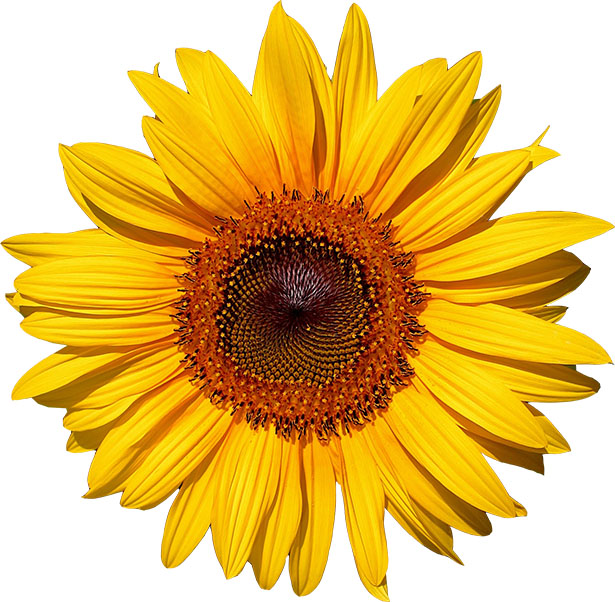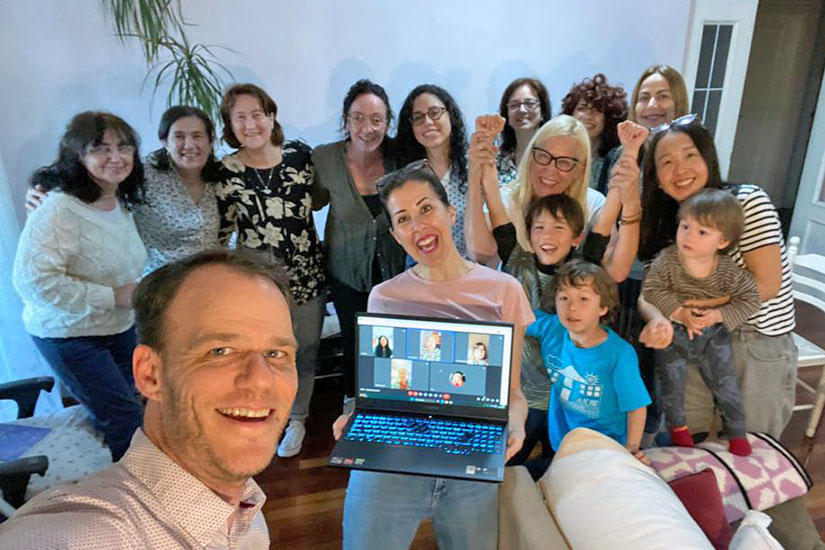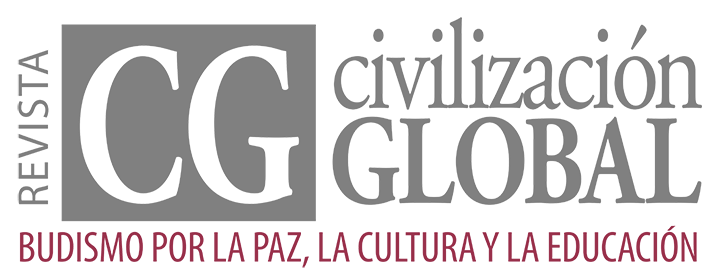Resources for the introduction of SGI – Spain’s DISCUSSION MEETINGS · FRIENDSHIP ENCOUNTERS
Summer is a time in which many people may take a break, change environment and rhythm and, ideally, regain energy to face autumn and winter. It is also true that for other people, in contrast, it represents a period in which their daily routine becomes even more demanding.
Nevertheless, in the past few years, summer is starting to gain, for some and others, a new dimension. It has become a season in which the effects of one of the main challenges which lies ahead of humanity, which is climate change, is experienced with increasing intensity.
Looking at the world today, it is easy to feel despair. A kind of powerlessness seems to be the prevailing mood (…). Decisions about important issues all seem to be made somewhere beyond our reach. What can one person accomplish in the face of the vast forces that run our world? The current of the times can seem so fast flowing and complex as to be overwhelming.[1]
In the pages of this magazine, we have sometimes talked about the consequences of the important future challenges that our society may have, especially, in the younger generations and in those who care about their development. Indeed, having seen the smoky air coming from the huge forest fires in Canada and which has travelled more than five thousand kilometres to Spain, to later see the sky filled with sand from the Sahara Desert together with record temperatures, is something that is worrisome. In the face of the combination of the current crises, in addition to the feeling which has been coined as “eco-anxiety”[2] extreme stances such as “anti-natalism” are gaining presence. A defender of this last option has summarised his motivation by affirming that “in short, being alive is not worth the multiple forms of suffering.”[3]
Someone who, from the Mahayana current, practices or sympathises with Buddhism, is not left indifferent to this. The fact is that the origin of this philosophy is found, precisely, in a young person seeking answers to the question related to how one can face in the best way possible life’s sufferings, and also in its discoveries. Immediately after his enlightenment under the Bodhi tree, Shakyamuni preached the Four Noble Truths which he had become aware of. The last one of these concludes that there is a path to transcend these sufferings of life…from life itself.[4]
I do not believe that people are powerless. The philosophical tradition I embrace teaches on the most fundamental level – that of life itself – that each human life partakes of the limitless life-force of the cosmos. The same power that moves the universe exists within our lives. Each individual has immense potential and a great change in the inner dimension of one individual’s life has the power to touch others’ lives and transform society. Everything begins with us…[5]
It is quite meaningful that, at the start of this quote – which comes, just like the one before, from a writing from Daisaku Ikeda which has inspired this article – we find the word “believe”. Just like Nam-myoho-renge-kyo, the phrase that Nichiren Daishonin defined as the fundamental truth to which the historical Buddha awakened to, everything starts from attitude, from conviction and from personal compromise (nam).[6]
The term my mentor, Josei Toda, used for this process of inner transformation that also transforms our surroundings was human revolution. And I believe it is the most fundamental, most vital of all revolutions. It can create changes that are more lasting and valuable than political, economic, or technological revolutions. For, no matter how external factors change, the world will never get better as long as people remain selfish and apathetic.
.
An inner change for the better in a single person – one person becoming wiser, stronger, more compassionate – is the essential first turn of the wheel towards realising peaceful coexistence and fulfilment for the whole human race. (…) When we change our inner determination, everything begins to move in a new direction. The moment we make a powerful resolve, every nerve and fibre of our being will immediately orient itself towards the fulfilment of this goal or desire. On the other hand, if we think, ‘This is never going to work out’, then every cell in our body will be deflated and give up the fight.
.

Someone who read these words, joyfully added: “And the wonderful thing about hope is that the more we share it, the more it increases in our own lives!”[8]
Through dialogue, sharing experiences and determinations, let’s make this season have an even newer meaning, let’s make it the “Summer of hope!”

In the SGI-Spain, we are already preparing the Introduction to Buddhism or Grade 1 exams, which are scheduled to take place during the month of November. Just as we can read in the section “Estudio” of this issue, the more we study Nichiren Buddhism, “the more we open the gates to a life of happiness and victory. The study of Buddhism expands and enriches our inner life state.” The picture we share and which has been taken in a discussion meeting of this district in the north of Alicante, portrays this joyful and triumphant life condition.
Mailbox: prensa@ediciones-civilizacionglobal.com
[1] ↑ IKEDA, Daisaku: Hope is a Decision, New Delhi: Eternal Ganges Press, 2018, pages. 3-5, cited in Civilización Global, number 189, January 2021, section «Año Nuevo» (adapted).
[2] ↑ Please see the section «En sociedad» in Civilización Global, number 210, November 2022.
[3] ↑ Please see ORTÍ, Antonio: «La filosofía que rechaza tener hijos: el desespero generacional que lleva al antinatalismo» (The philosophy that rejects having children: the generational despair that leads to anti-natalism) in La Vanguardia, 30/5/2023. The cited passage refers to Miguel Steiner, doctor in Philosophy by the University of Barcelona, who mentions, as causes of suffering, “hunger, wars, natural disasters, torture, accidents, refugees, physical and mental illnesses, climate change, species disappearance, pollution, non-stop suicides…”
[4] ↑ The way to attain this is the Eightfold Path, in other words, the Buddhist practice.
[5] ↑ IKEDA, op. cit.
[6] ↑ Please read more about it and watch an illustrating video in the global Soka Gakkai website.
[7] ↑ IKEDA, op. cit.
[8] ↑ Please see the section «Año Nuevo» in Civilización Global, number 189, January 2021 (the first conjunction has been added).
